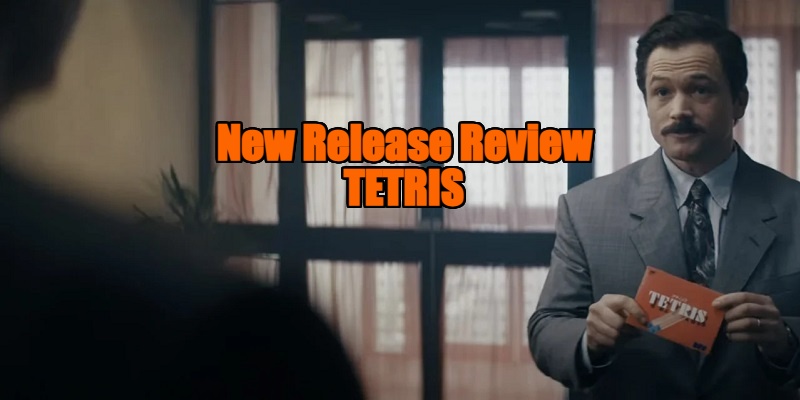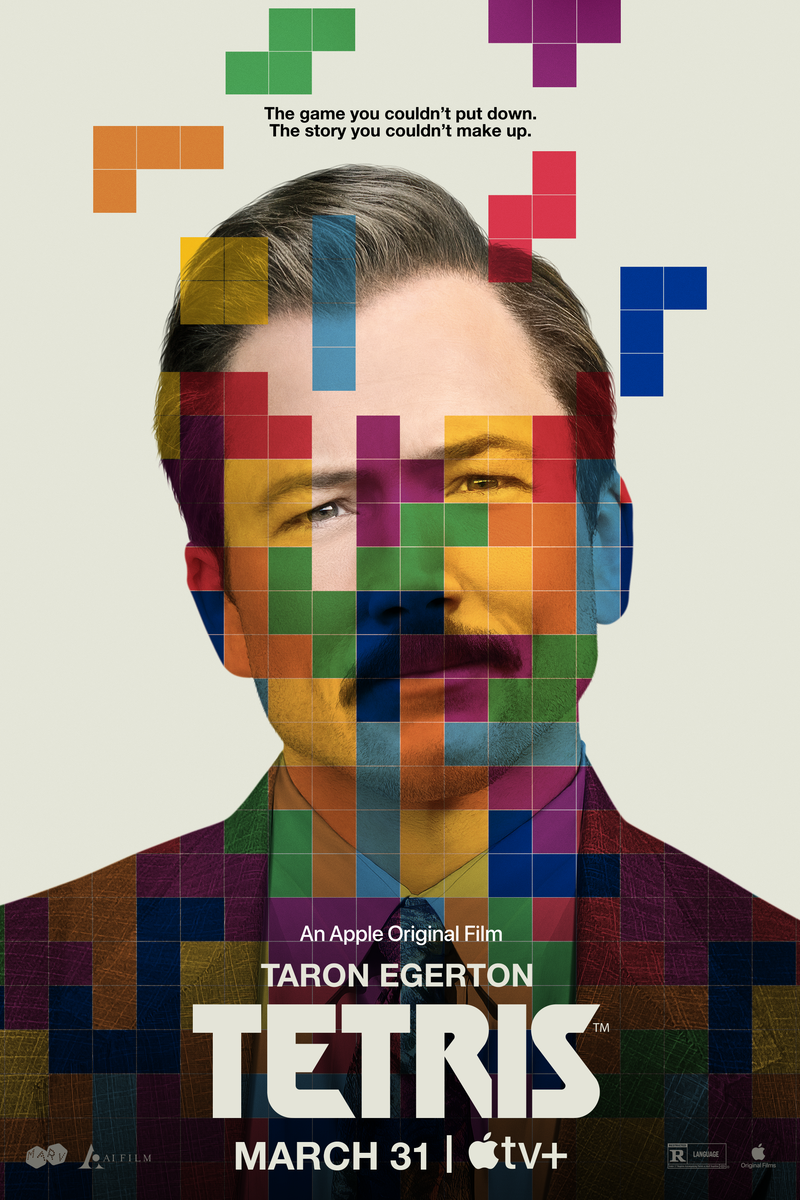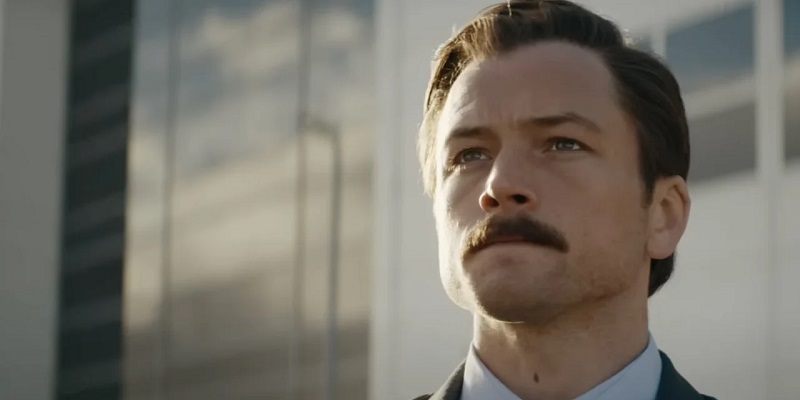
Review by
Eric Hillis
Directed by: Jon S. Baird
Starring: Taron Egerton, Nikita Efremov, Sofia Lebedeva, Anthony Boyle, Roger Allam
Toby Jones

When it was initially announced that a Tetris movie was forthcoming,
most of us assumed it would be an animated comedy with multi-coloured
and various shaped blocks voiced by the likes of Kevin Hart and Tina
Fey. It was subsequently a surprise to learn the movie wouldn't attempt
to adapt the game itself but rather detail the battle to acquire its
distribution rights in the 1980s.
Just in case there's one person on the planet who isn't familiar with
Tetris, it's a game developed in the Soviet Union in the mid-80s that
involves falling bricks that must be matched when they reach the bottom
of the screen to complete a row that then vanishes, allowing the player
more time to rack up a high score. Despite its basic graphics and
gameplay arriving at a time when video games were becoming more
sophisticated, Tetris became a global sensation, becoming one of the
biggest selling video games in history. You probably have some variation
of the game on your phone today.

As director Jon S. Baird and writer Noah Pink's
Tetris details, getting the game out from behind the Iron
Curtain and to the rest of the world involved various corporate
wranglings. At the centre of the story is Henk Rogers (Taron Egerton), a Japanese-based Dutch-American software developer who discovers the
game at the Las Vegas trade show CES. Learning that the rights for
certain territories and platforms are still up for grabs, Rogers sets
about attempting to acquire them.
This sees Rogers rub up against various shady figures including the
soon to be disgraced publishing magnate Robert Maxwell (Roger Allam) and his son Kevin (Anthony Boyle), and slippery software
salesman Robert Stein (Toby Jones). Getting nowhere in the West,
Rogers travels to Moscow, hoping to discuss business with ELORG, the
Soviet body concerned with exporting software. There he is aided by a
local interpretor, Sasha (Sofia Lebedeva), while befriending the
game's creator, Alexey Pajitnov (Nikita Yefremov).

Baird and Pink strive to turn this corporate story into a Cold War
thriller, with Rogers and his associates hounded by stereotypical
mustache twirling KGB agents. It even climaxes with an over-the-top car
chase as our western heroes race to the airport to leave the USSR before
they're sent to a gulag. The score is by Lorne Balfe, of the
Mission Impossible series, and incorporates the Tetris theme (a riff on
the classic Russian folk song 'Katyusha') and various '80s hits reworked
into an 8-bit synth bonanza. The manic score's energy is echoed by
Egerton with a Michael J. Fox-esque performance that suggests he's
playing Rogers as a secret coke addict. There are occasional cutaways to
footage of '80s games, while establishing shots are rendered in the
style of arcade classics like Rampage.
For all its stylistic quirks, Tetris finds itself too
often stuck in the mud of boring corporate machinations. There's a
middle section that sees Rogers pitted in a battle of wits against ELORG
head Nikolai Belikov (Oleg Stefan) that drags on and on,
suffering from an absence of the sort of sharp, witty writing this type
of movie lives or dies by (come back Aaron Sorkin, all is forgiven).
Somehow the filmmakers have stretched to nearly two hours a story that
at best would probably fuel a 30 minute YouTube video essay. If you
think a story about negotiating video game rights might want for drama
and thrills, you're correct, and every time the Maxwells appear you'll
probably find yourself wishing the film was about their well-noted
skullduggery instead.

Tetris is guilty of some sloppy filmmaking. There are odd
continuity issues, like how a bunch of Rogers' kids just seem to vanish
halfway through the movie, as though the child actors suddenly became
unavailable. Video game buffs have pointed out that many of the
depictions of the game seen in cutaways don't reflect the actual game
play. Some of the digital recreations of '80s Moscow (which, constantly
drab and grey, seem based on a western propaganda depiction of the
Soviet era rather than the more colourful reality) are particularly
rough, especially during the aforementioned climactic chase through the
city.
Props must be given to Tetris for casting actual Russian
actors as Russian characters, rather than the usual Brits and
Scandinavians with dodgy "I vill crush you" accents. With US-Russia
relations returning to Cold War levels, it's probably not something
we're going to see again for a while.


